
Watch out, Audi! How Lexus staged a sales comeback in 2023 off the back of updated Lexus RX, NX and UX SUVs
The cold, hard facts of the 2022 sales data were not good for Lexus. The brand...
Browse over 9,000 car reviews
.jpg)
Ford has taken the unusual step of slashing Mustang Mach-E pricing even before customer deliveries commence in Australia.
Cut by up to $7000 according to grade, it means that the least expensive version of the company’s first passenger electric vehicle (EV) in Australia now kicks off from $72,990 (all prices are before on-road costs), down from $79,990.
The mid-range Premium has slid from $91,665 to $86,990 for a $4675 drop (meaning that there are now two Mustang Mach-Es under the current luxury car tax threshold of $89,332), while the flagship GT that started from $107,665 now costs $2675 less, kicking off from $104,990.
According to Ford Australia Product Communications Manager Ben Nightingale, the brand is reacting to what consumers want and what the EV competition is doing in the same space.
“We’ve read the temperature of the market,” he told CarsGuide. “Like some other manufacturers, we’re responding to demand.”
If you’re awaiting delivery of a Mustang Mach-E, Nightingale added that Ford has already notified every dealer in Australia of the change, with the anticipation that each will pass on the saving.
“Every dealer has been issued a bulletin within the new pricing,” he said.
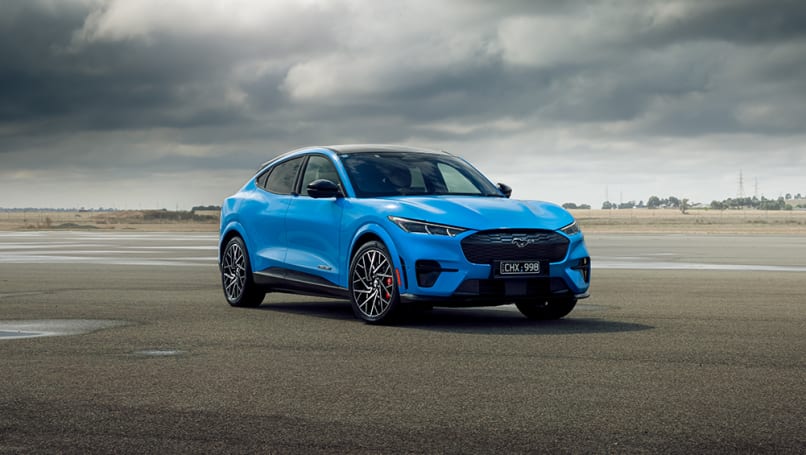
“While the offer price of any vehicle is at the discretion of the dealer, the first Mustang Mach-Es are yet to be delivered, so our expectation is that customers will benefit from the new pricing - and dealers will be reaching out to their customers to discuss this.”
Of course, EV leader Tesla has set the pace for pricing ‘adjustments’ over the past 18 months or so, see-sawing the Manufacturer’s List Price (MLP) for the Model 3 mid-sized sedan and Mustang Mach-E-rivalling Model Y mid-sized SUV significantly.
Back when Ford announced its EV pricing back in July, the Model Y started from just under $70,000 to $100,000 – and that was already down from the initial launch pricing of $72,300 to over $100,000. Today, the same model ranges from $65,400 to $92,560.

The result has been a bumper year for Tesla. Year-to-date, the Model Y is at 27,418 sales, representing a 230 per cent leap in volume over last year, and putting the EV sixth overall behind the Toyota HiLux (55,968), Ford Ranger (55,589), Isuzu D-Max (28,369), MG ZS (27,736) and Toyota RAV4 (27,435).
Plus, Tesla’s even-cheaper Model 3 that right now starts from $61,900 is at 16,506 units – so is sandwiched between the far-cheaper Hyundai i30 above, and Toyota Corolla just below. Remarkable stuff.
But it isn’t just Elon Musk who is rattling Ford with erratic Tesla pricing.

More recently, Volvo made headlines around the world with its sharply-priced EX30 EV small SUV, positioning it between $59,990 and $69,990 – and the latter has twin electric motors and is capable of catapulting the Chinese-made Swede from zero to 100km/h in a Mustang Mach-E-embarrassing 3.6 seconds.
In response to Tesla, Hyundai, too, has introduced cheaper versions of its Ioniq 5 SUV and Ioniq 6 sedan, with smaller-battery models taking the starting price down from around $72,000 to about $65,000.
The Ford’s price drop reflects the ever-evolving state of the EV market overall, which is currently defined by aggressive pricing from Chinese brands at the bottom end of the spectrum, driven by privately-owned BYD and GWM and state-owned MG.

Collectively they offer 14 models under $50,000. The cheapest non-Chinese EV is the pioneering Nissan Leaf from $50,990, followed by the Fiat 500e from $52,500.
Further to that, Tesla, Kia and most-recently Toyota have indicated that they, too, will be offering inexpensive EVs over the next few years in Australia, along with Hyundai, Nissan and others.
The EV price war rages on and there will be more joining in soon.
Watch this space.





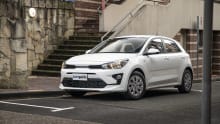
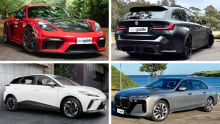
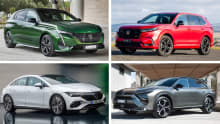
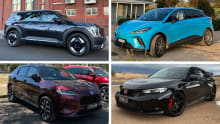
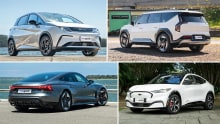
Comments